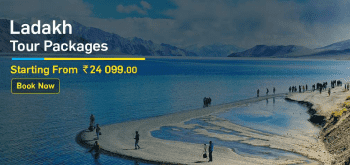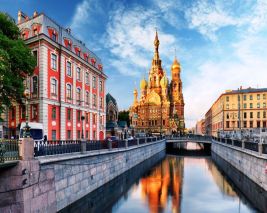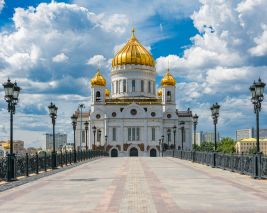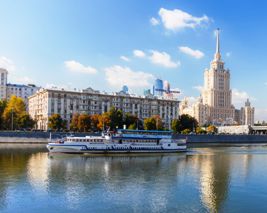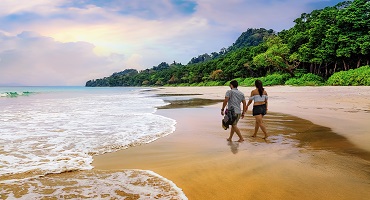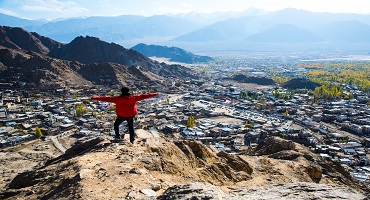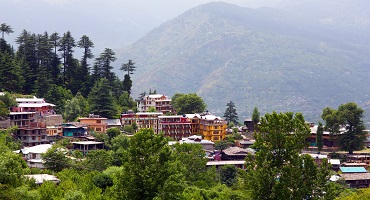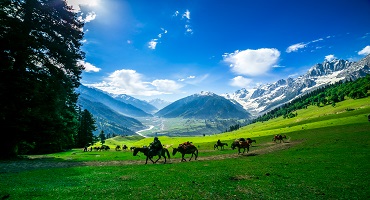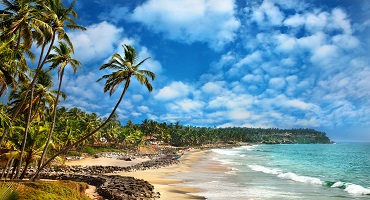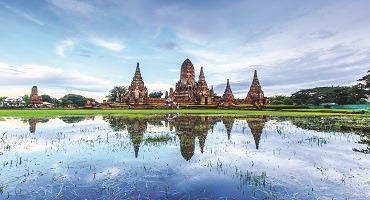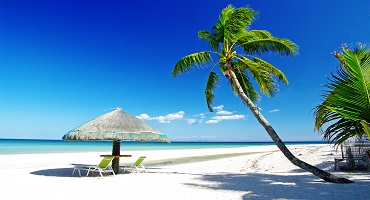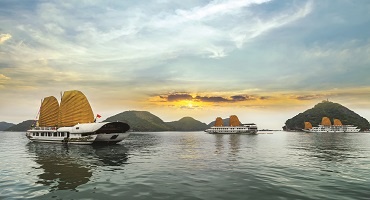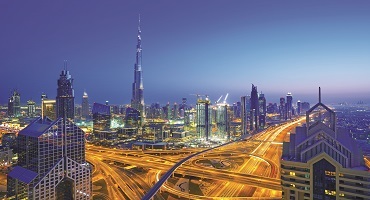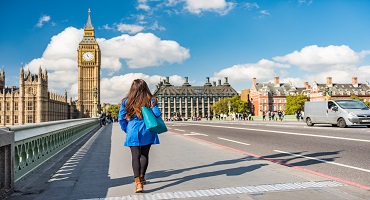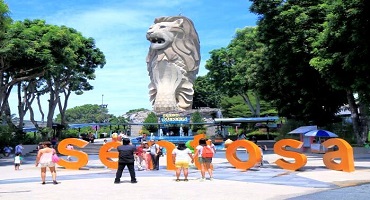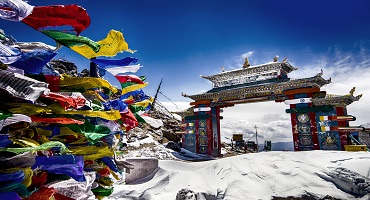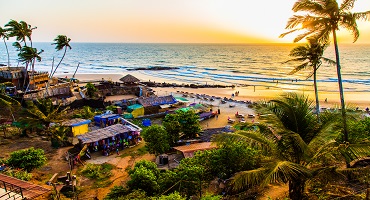Russia will charm you at first sight. With its rich history, colourful culture and a voracious love for arts of all kinds, the world’s largest country is a fascinating kaleidoscope of experiences. The iconic and colourful onion domes of Kremlin are an enduring image of the country that, until recently, was a mysterious land. Spending almost a century behind closed doors, Russia is now redefining itself as an exciting travel and holiday destination.
The magnificent walled fortresses and soaring grand palaces are remnants of an imperial past that was far removed from communist ideals. Although Moscow and St. Petersburg are Russia’s political powerhouses, they’re also the heart of the country’s art and culture. St. Petersburg alone has around 2000 libraries, 221 museums, 100 concert halls, 80 theatres and 45 art galleries! So, if you’re looking to pursue the culture trail on your holiday, you’re all set.
However, Russia has much more to offer. You can spend several mesmerising hours amidst the hypnotic swirls of the psychedelic salt mines at Yekaterinburg. Ride on the world’s longest train line which runs across Russia and shows you some stunning vistas along the way. Grab a few moments of peace at Kazan’s Temple of All Religions and marvel at the opulence of Amber Room inside Catherine Palace at Pushkin.
If you’re headed to Sochi, check out the Olympic and Riviera beaches for some quality outdoor time. From its art to its beaches Russia will surprise you with the range of its offerings that puts it at par with some of the better-known holiday destinations. Here’s a closer look at the weather of Russia that will help you prepare for an adventurous holiday.
Peak Season - Summer, from June to August, is the peak season for Russian tourism. The weather is pleasant, and it gets warm without being too uncomfortable. The schools are on a summer break and all of Russia basks in the sun after a cold winter and brisk spring.
Shoulder Season - Spring (March - May) and Autumn (September - November) are the shoulder seasons in Russia. The spring is quite cold, but temperatures begin to climb up from the sub-zero realm. Hot on the heels of summer, autumn is a bit warmer than spring.
Low Season - With sub-zero temperatures throughout the season, Winter (December - February) is the low season in Russia. The magic of winter transforms Russia into a snow-covered fantasy land, but the extreme cold keeps visitors away.
| Travel Season |
Min./Max Temperature |
Season |
| March - May |
-8 to 19°C |
Cold but PLeasant |
| June - August |
11 to 23°C |
Warm And Pleasant |
| September - November |
-3 to 16°C |
Cool and Pleasant |
| December - February |
-16 to -5°C |
Cold with Heavy Snowfall |
Russia In Spring (March - May)
Temperature - The cold spring season of Russia experiences temperatures between -8 to 19°C. They remain mostly under 0°C in March, gradually climbing to double digits by the end of April.
Weather - While these temperatures are considered cold elsewhere, in Russia they bring a bit of relief from the teeth-chattering cold of winter. March still sees some snowfall while April emerges refreshed, fragrant and colourful, as the snow finally melts away.
Significance - Spring wakes up Russia from its long hibernation and starts adding colour to a monochromatic winter landscape. The flowers bloom and tress start regenerating their foliage. The parks and gardens are full of locals, but surprisingly few tourists.
Why you should visit now - Spring is a quiet time in Russia without too many tourists around. With many festivals being celebrated in spring, it is the best time to get a close look at the local culture. You can explore the museums and palaces at your leisure without the usual crowd of tourists. With the snow still around at the beginning, most parks stay closed until May. Witness the magnificent military parade of Victory Day in Moscow or head to Karelia to enjoy its pristine beauty.
Things to know before the visit - 1st May is a holiday in Russia. Various labour unions hold peaceful demonstrations to commemorate the Labour Day. It is best to stay indoors as getting around the city becomes difficult.
Tips - It is still cold in spring in Russia, so carry a heavy jacket and dress in layers. If you’re visiting towards the end of spring, a light jacket or sweater would suffice.
Russia In Summer (June - August)
Temperature - In summer, the temperatures around Russia hover between 11 to 23°C. But on some days the mercury may rise up to 30°C or more.
Weather - It rains throughout summer in Russia. July sees the peak of summer and is the hottest month of the year. Though the days tend to get hot, nights are much cooler. The heat starts dissipating and things begin to cool down as August comes around.
Significance - The days start getting longer in summer, which means you get more time for your sightseeing. Northern cities such as St. Petersburg experience ‘White Nights’ as the sun barely sets at night.
Why you should visit now - The whole of Russia migrates to the countryside to spend the summer in their ‘dachas’. All the tourist attractions are open and operating at full capacity. This is a good time to explore Russia’s museums and palaces. The main theatres of Russia such as the Bolshoi and the Mariinsky remain closed in summer. But the operas and ballets continue in smaller theatres. You can spend your days at the beach and enjoy summer with the locals. Alternately, you can follow the Golden Ring of Russia and explore its medieval towns.
Things to know before the visit - This is the peak tourist season and you will find crowds all over. Ticket prices, restaurants, hotels and travel will be more expensive than usual. Book your tickets in advance whenever possible and save yourself some money and hassles.
Tips - Pack light clothes and carry your sun protection. Do not forget your mosquito repellent and remember to stay hydrated.
Russia In Autumn (September - November)
Temperature - After a warm summer, the temperature drops and ranges between -3 to 16°C. The mercury mostly stays above zero, dipping below only towards the end.
Weather - Autumn weather of Russia is an unpredictable beast. While most days are pleasant, some days lean towards the extreme ends of the weather. The rains continue from summer, but not as heavily.
Significance - The tourists start leaving by mid-September and school vacations end. Once again, the cities and town of Russia become crowd-free. The high prices recede along with the heat. September is a good time to travel and explore as its starts getting colder in October and November.
Why you should visit now - In Autumn, Russia exchanges its green cover for an orange coat. This is a good season to travel around the countryside where farmers celebrate their bounty with harvest festivals. If you’re looking to do outdoor activities, you can go hiking into the mountains or head to the beaches for water sports. The Baikal Lake is particularly beautiful at this time of the year. The snowfall starts by mid-November and paints the canvas in various hues of white.
Things to know before the visit - With the crowds gone, you can enjoy some good deals on your travel as well as accommodation. Some tourist attractions may be closed to prepare for the winter. Enquire with your hotel before you make your itinerary.
Tips - Always carry an umbrella with you. A thick jacket should be enough to protect you from the cold. Dress in layers to tackle the unpredictable weather. You won’t need sun protection as temperatures rarely cross 20°C.
Russia In Winter (December - February)
Temperature - The coldest time of the year in Russia, temperatures do not venture over the freezing point and remain between -15 to -5°C.
Weather - The harsh Russian winter brings an overwhelming cold that could prove too much for tourists. In Siberia, temperature falls 50 degrees below freezing, while cities like Moscow and St Petersburg seem colder than the actual temperature.
Significance - Most of Russia is a no-go in Winter. If you’re brave enough to endure the bone-chilling cold, you will be rewarded with some stunning snowscapes that seem like a Christmas postcard. Also, you will have to pay much less for your stay.
Why you should visit now - Winter gives you a different perspective on Russia’s cities. The snow damps sound and brings a feeling of peace and serenity in otherwise buzzing cities. Try walking across frozen rivers like the locals, which can prove to be handy shortcuts. Take a Russian Bath in a Banya. It involves taking a Sauna and jumping into ice-cold water immediately afterwards. If you move further north to Murmansk, you will be treated to the best light show on earth, the Auroa Borealis.
Things to know before the visit - The winter cold shrinks the days, so you get lesser daylight time to do your sightseeing. Make your plans accordingly and do not venture outdoors at night.
Tips - Pack your heaviest woollens and invest in a good thermal suit. You will need all the heavy clothes you have. Carry a good pair of sunglasses to protect your eyes against the glare of the snow and make sure you have plenty of moisturiser.
Each season of Russia has its charm, and your best time to visit would be completely dependent on what kind of a holiday you’re looking for. Thomas Cook’s Russia holiday packages will introduce to the delights of Russia step by step. So, if you have decided your travel period, drop into your nearest Thomas Cook branch or book your holidays online.






